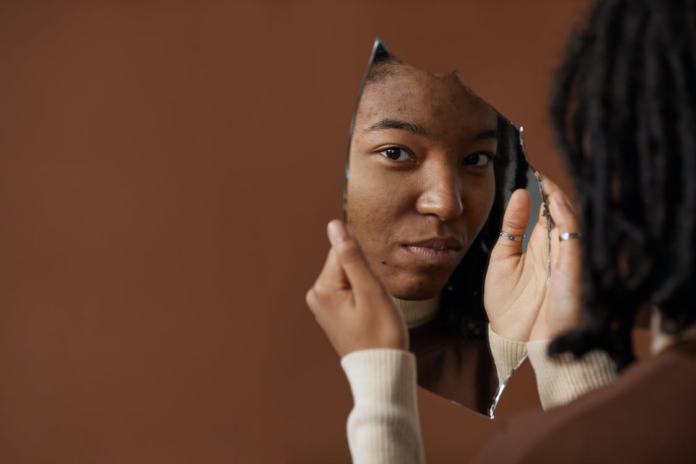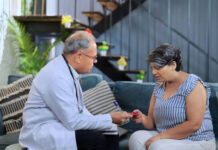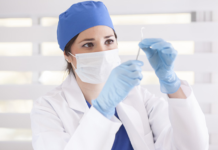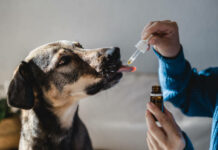Do you have acne and want to solve this problem permanently? Don’t worry because you’re not alone. Acne is a common skin problem that causes various types of skin blemishes. It may cause pimples, whiteheads, or blackheads. It is most common in teenagers after puberty, with boys most commonly affected.
When compared to other diseases, many think acne is a trivial issue. However, there is evidence that it can lead to psychological, social, and emotional consequences at the same level as patients with chronic health problems, like diabetes, epilepsy, or arthritis. For this reason, it would help if you solved this problem permanently. Therefore, in the following sections of this post, you’ll learn five tips to solve your acne. So, read on and find out.
- Using CBD for Acne
Photo by Christin Hume on Unsplash
People have used natural remedies to promote healthy, beautiful skin for thousands of years. Cannabis-derived cannabidiol (CBD) is one option that’s gaining popularity. The ability of CBD oil to adjust how your body produces sebum — an oily, waxy substance the skin produces may help reduce different types of acne.
Researchers studied the efficacy of CBD on human sebocytes — the sebum-producing cells. They discovered CBD prevented the cells from producing excess oily sebum. They also found that the CBD oil stimulated the cells’ anti-inflammatory reaction and prevented the activation of inflammatory cytokines. Cytokines can cause acne, so reducing them might prevent future breakouts. Countless CBD products are available to solve your acne problem permanently, including topical pain relievers, full-spectrum CBD oil, and acne treatments.
- Managing Stress
When subjected to severe, prolonged stress, it might affect both the brain and body chemistry, potentially resulting in acne. Here’s how stress might affect you:
- Ages the skin faster: By increasing the formation of free radicals, stress might speed up the skin’s aging process.
- Dries out the skin: It can make you sweat more. A rapid loss of water causes the body to dehydrate. Water is vital for skin health since it keeps it moist.
- Increases oil production: It can make your skin greasy and oily, resulting in clogged pores and acne. Stress releases large amounts of cortisol, causing the sebaceous glands to secrete more oil.
Here are a few ways you can reduce your stress to prevent acne:
- Meditating: Meditating reduces inflammation in the body, improves the quality of the skin barrier, smooths and plumps the skin, and reduces the appearance of rosacea and acne.
- Exercising: The skin benefits from exercise in many ways, including increased blood flow and reduced stress-induced acne.
- Yoga: Yoga encourages physical and mental relaxation, which also helps reduce stress and anxiety.
- Avoid Popping Pimples
Photo by Towfiqu barbhuiya from Pexels
A pimple can become inflamed, painful, and uncomfortable if you fidget with it. Popping pimples can delay your body’s natural healing process, so you’ll have an even worse blemish, although it might seem like a quick fix. As acne progresses, it can become irritated, pus-filled, etc. If you poke or touch it, it will cause inflammation and scarring, known as post-inflammatory hyperpigmentation.
In the event of an outbreak of acne in the future, use creams containing retinoids or antibiotics to help dry up the pimples. Specific over-the-counter topical applications can cause photosensitivity. So when you use a retinoid cream, use sunscreen.
- Reduce Acne-Causing Foods
It’s not just food that causes acne – or prevents it. Your genes, lifestyle, and eating habits influence the condition. Some foods can irritate your skin, while others can keep it healthy. These are a few potential triggers. Currently, doctors are unsure of the link between acne and foods. However, there is some evidence that certain foods may trigger acne in specific individuals.
The American Academy of Dermatology reports that foods high in the glycemic index may aggravate acne or cause acne to develop. The foods in this category are sugary and high in carbohydrates. Some examples include:
- Cookies
- Chocolates
- Cakes
You may also develop acne if you consume dairy products, especially skim milk. You may also avoid eating certain food groups to see if that improves your skin.
You can replace these foods with these to get rid of acne permanently:
- Oysters: They contain zinc, an essential nutrient for your skin. It may kill the bacteria that cause acne.
- High-fiber foods: The consumption of high-fiber diets like oatmeal, beans, apples, and carrots helps control blood sugar levels, which is beneficial for acne prevention.
- Nuts: Almonds, peanuts, and Brazil nuts are high in antioxidants, such as vitamin E and selenium, which acne sufferers often lack.
- Consider Topical Retinoids
Photo by Mikhail Nilov from Pexels
Developed for acne in 1971, many have heralded retinoids as the cure-all for skin troubles. Skin doctors prescribe them to manage and prevent acne because they contain vitamin A-derived medicines. Retinoids also reduce inflammation and eliminate dead skin cells.
When other treatments have failed to resolve moderate-to-severe acne, a retinoid may help. The application of retinoids on the skin can unclog pores, permitting other medication creams and gels to do their job more effectively. They also prevent dead cells from clogging pores, thereby reducing acne outbreaks. They may also reduce acne scars by clearing acne and reducing outbursts.
Conclusion
Acne is the most common skin condition affecting humans. It might lead to whiteheads, pimples, blackheads, or nodules that may affect you physically, psychologically, and emotionally. However, you can use the above tips to solve your acne problem permanently today. So, which one will you try first?








